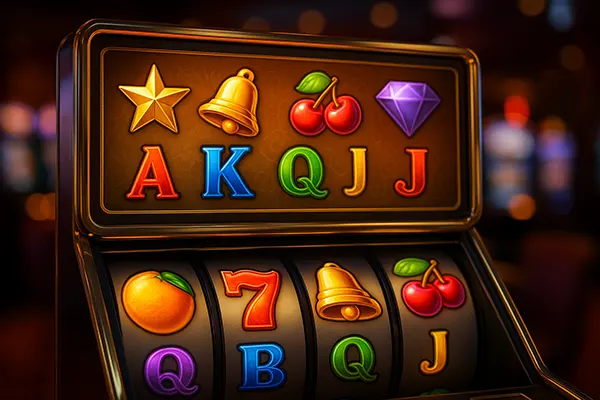
Gambling as an Escape: Psychological Aspects of Addiction
Gambling has been a part of human culture for centuries, offering excitement and the promise of fortune. However, for many individuals, gambling becomes more than just entertainment—it evolves into a psychological escape from the challenges of everyday life. This article delves into the complex relationship between gambling and escapism, exploring the emotional triggers, psychological mechanisms, and potential paths to recovery. By understanding these aspects, we can shed light on the hidden struggles faced by those affected by gambling addiction.
The Allure of Gambling as an Escape
Gambling has long been a source of entertainment, but for some individuals, it becomes more than just a pastime. The psychological need to escape from reality often draws people toward gambling, creating a complex cycle of dependency. This allure stems from the promise of instant rewards and the temporary suspension of life’s challenges. Many individuals find solace in the excitement and unpredictability of gambling, which serves as a temporary distraction from their everyday struggles.
For some, gambling offers a sense of control in situations where they feel powerless. The ability to make decisions, take risks, and experience moments of victory can provide a much-needed confidence boost. However, this sense of control is often illusory, as the outcomes of gambling are largely determined by chance. Over time, this illusion can deepen the dependence on gambling as a coping mechanism.
The cultural perception of gambling as a glamorous or thrilling activity also contributes to its allure. Media representations often highlight the excitement of big wins and the lifestyle associated with success in gambling, ignoring the potential for addiction and the long-term consequences. This societal glorification makes it easier for individuals to justify their behaviour, believing they are partaking in a harmless activity.
The Role of Stress and Emotional Triggers
Stress and emotional challenges are significant factors that lead individuals to gambling as a form of escapism. Financial difficulties, relationship issues, or even workplace stress can push a person toward seeking solace in gambling. The unpredictability and excitement provide a temporary high, masking deeper emotional struggles. Over time, these unresolved issues can compound, making the person increasingly reliant on gambling to cope.
In addition, emotional triggers such as loneliness, anxiety, and depression are common precursors to gambling addiction. The act of gambling can create a false sense of social connection or purpose, temporarily alleviating feelings of isolation or inadequacy. However, the relief is often short-lived, leading to repeated gambling sessions in pursuit of the same fleeting comfort.
Another critical aspect is the impact of personal loss or trauma. For many, gambling becomes a way to numb emotional pain or fill a void created by significant life events. This pattern of avoidance can make it difficult to confront and process emotions, perpetuating a cycle of dependency and emotional instability.
The Psychological Mechanisms Behind Addiction
Understanding the psychological mechanisms is crucial to addressing gambling addiction. It is often compared to substance addiction due to similar brain responses. The release of dopamine during wins creates a euphoric effect, reinforcing the behaviour and leading to dependency. This chemical reaction in the brain creates an intense desire to repeat the experience, even when the individual is aware of the potential negative consequences.
The concept of intermittent reinforcement plays a key role in gambling addiction. Unlike predictable rewards, gambling provides sporadic wins, which are more psychologically stimulating and addictive. This unpredictability keeps individuals engaged, hoping that the next attempt will bring success. The anticipation of a potential win can be as rewarding as the win itself, further fuelling the cycle of addiction.
Furthermore, the phenomenon of “loss chasing” exacerbates the issue. After a loss, individuals often feel compelled to continue gambling in an attempt to recover their losses. This behaviour, driven by a combination of hope and desperation, can lead to significant financial and emotional consequences. The more they lose, the more they gamble, believing that persistence will eventually lead to a positive outcome.
Reinforcement and Loss Chasing
The reinforcement loop plays a significant role in gambling addiction. Small wins encourage continued play, while losses drive individuals to chase their money, believing they can recover it. This vicious cycle often leads to significant financial and emotional consequences. The psychological toll of this behaviour can manifest as feelings of guilt, shame, and helplessness, making it even harder to break free from the addiction.
Moreover, the design of gambling environments and games often exploits psychological vulnerabilities. From bright lights and celebratory sounds to loyalty programs and near-miss outcomes, every element is crafted to keep players engaged. These manipulative tactics can make it challenging for individuals to recognise the extent of their addiction and seek help.

Breaking the Cycle: Recovery and Support
Overcoming gambling addiction requires targeted interventions and support systems. Psychotherapy, particularly cognitive-behavioural therapy (CBT), has proven effective in addressing the root causes of gambling addiction. CBT helps individuals identify and change the thought patterns and behaviours that drive their addiction, providing them with healthier coping mechanisms.
Another crucial component of recovery is education and awareness. Understanding the psychological and social factors that contribute to gambling addiction can empower individuals to make informed decisions about their behaviour. Public awareness campaigns and educational resources can play a significant role in reducing the stigma associated with seeking help.
Additionally, financial counselling and management strategies can help individuals regain control of their finances, which is often a significant source of stress for those struggling with gambling addiction. Learning to manage money effectively can alleviate some of the anxiety that drives gambling behaviour, providing a stable foundation for recovery.
The Importance of Social Connections
Strong social connections play a pivotal role in recovery. Support groups and family involvement can provide emotional stability and encouragement. These connections not only help in addressing the addiction but also in rebuilding trust and relationships affected by gambling behaviours. The sense of belonging and understanding within a supportive community can be a powerful motivator for change.
Lastly, creating a balanced and fulfilling lifestyle is essential for long-term recovery. Engaging in hobbies, physical activities, and meaningful work can provide alternative sources of enjoyment and purpose. By focusing on personal growth and well-being, individuals can build resilience against the triggers that lead to gambling addiction.
Popular
-
No-deposit casino bonuses: the restriction...
No-deposit bonuses can look straightforward: you register, …

-
No Deposit Bonuses: Conditions, Risks, and...
No deposit bonuses remain one of the …

-
How to Evaluate Slot Risk Level Using the ...
Understanding the risk profile of a slot …

